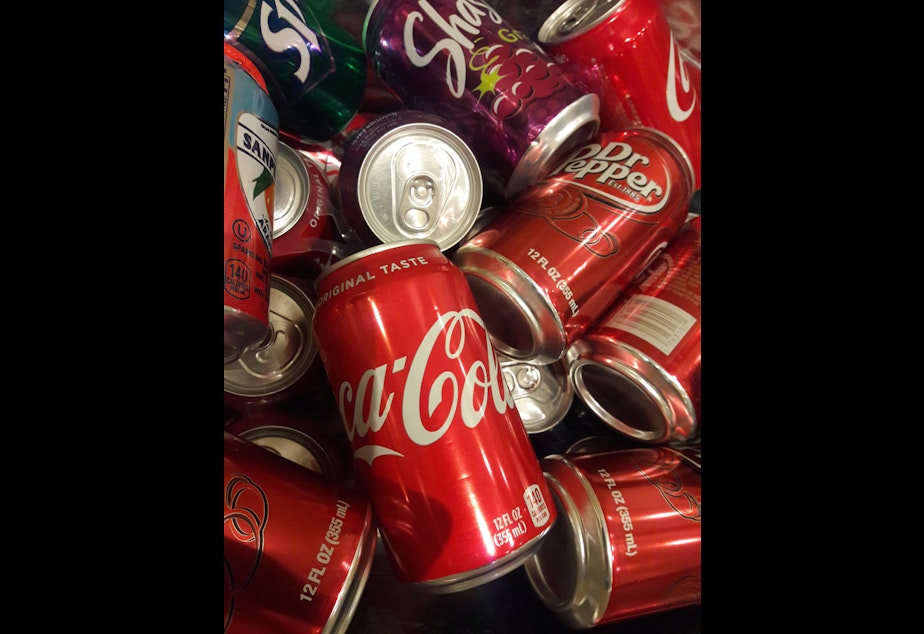Seattle's low income communities benefit from soda tax revenue, UW study says

Seattle’s soda tax has been effective in reducing consumption of sugary drinks. Turns out, money from the tax also helps low income communities, according to a University of Washington study.
Revenue from Seattle’s soda tax funds programs like Fresh Bucks, which helps low income families afford fresh fruit and vegetables.
Emy Haruo, director of community resources at the social service organization Neighborhood House, says having Fresh Bucks vouchers helps her clients stretch their food budget.
“Knowing that they can spend $40 on fresh foods that they wouldn’t have money to spend on makes a difference,” Haruo said.
Last year, the non-profit enrolled 736 people in the program.
Seattle started taxing sugary drinks in 2018 in an effort to reduce consumption and improve health.
Sponsored
Critics have argued that the tax would disproportionately burden low income communities. A new UW study shows that low-income families pay a larger portion of their household budget on the tax. But much of the tax revenue also funded food-related and health programs that benefit this population.
In addition to expanding Fresh Bucks, the city directed soda tax money to local food banks, and senior meal programs, among others.
Haruo says part of Fresh Bucks’s appeal is being able to choose their own produce.
“Some of our clients even found new interests and vegetables they’ve never heard of,” Haruo said. “Bok choy has gotten popular, Chinese broccoli have gotten popular, taro has gotten popular.”
In addition to Seattle, researchers analyzed data from San Francisco and Philadelphia. The study was published this month in the journal Food Policy.
Sponsored
Updates and more in KUOW's Today So Far Blog




